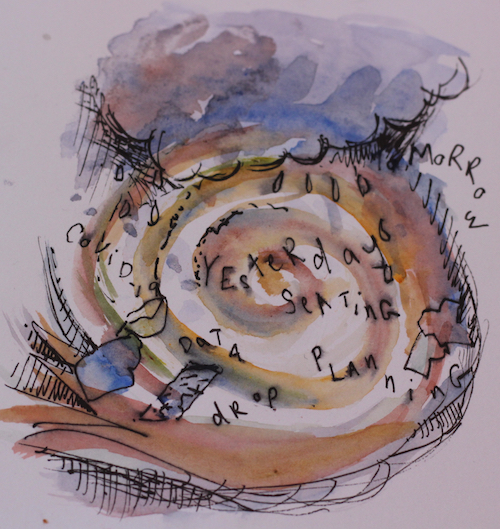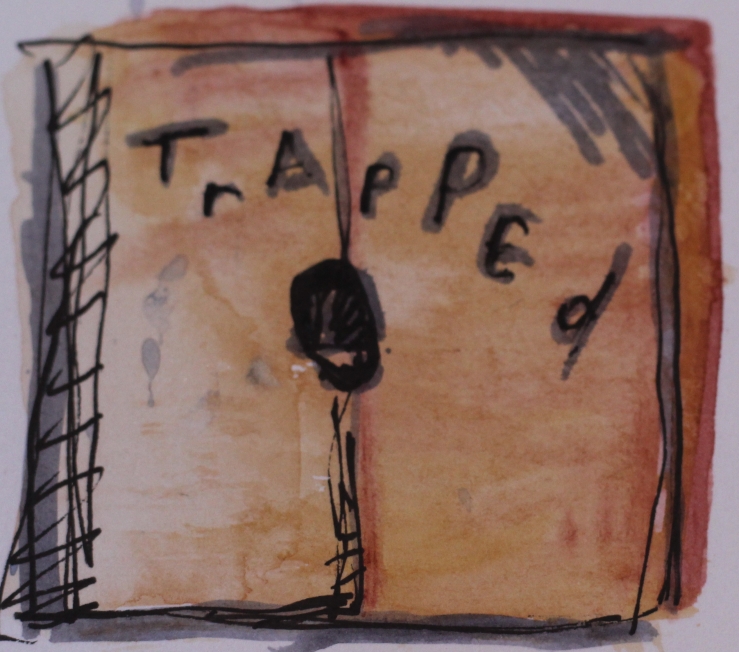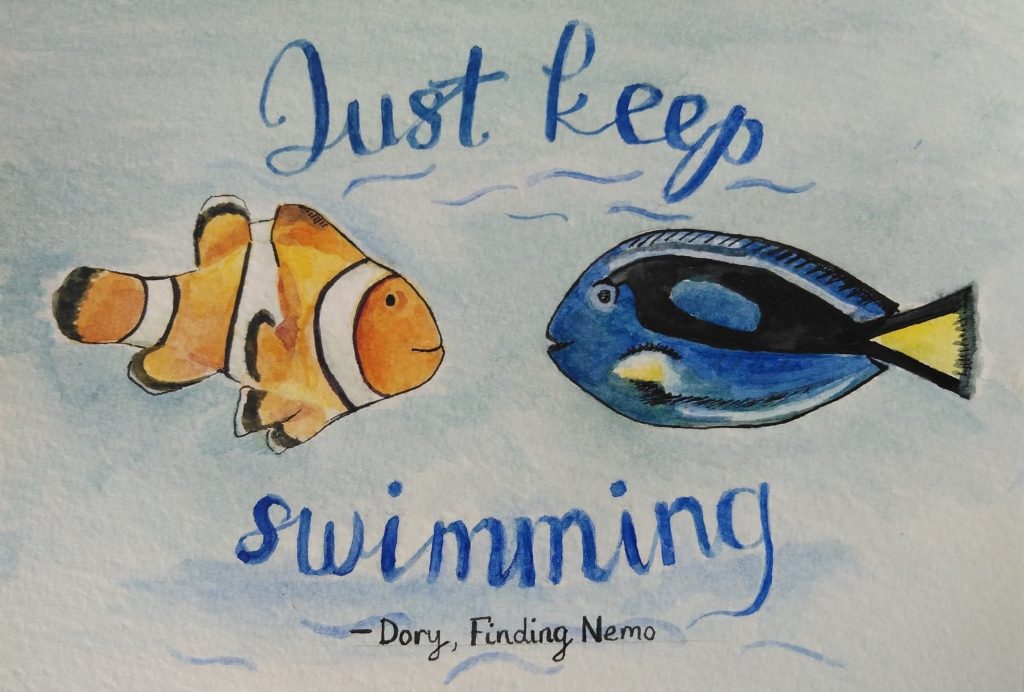My hope to publish this at the start of Dyspraxia Awareness Week was of course an ambitious one… It has been a busy week with a few dyspraxidents for good measure – before you ask, nothing too serious, just broken glasses and a mishap with the hair straighteners resulting in minor burns…! It shouldn’t come as a surprise at this point, since us dyspraxics certainly aren’t known for our spatial awareness and coordination.
And on that note – I really hope that the following poems can be relatable in some way, whether you have dyspraxic traits yourself, or know someone who does. As always, feel free to let me know your thoughts in the ‘Comments’ section.
Take care,
-Misspraxic
1. bruises
the greenish bluish tones of cerulean
mixed with a dash of ochre
create an image – not the impressionist greens
found in Monet’s lush poppy fields
and not the strong blues flowing down the Seine
but the textures of unruly paint dots, erratically
splattered spilled stained
they bleed all over my pages
but my legs and mind do try ever so hard
to keep up with a weary world
where there’s somehow no security
in the greens of a paintbrush
that cannot guarantee my protection,
for I’m the amateur artist who lacks control
like that old car with the dodgy motor
that nobody trusts enough-
my skin is left tired and tainted
by these greenish bluish blotches
and risk cycles round me in circles.
i never progress past yesterday’s chapter
of knocking falling staining –
these marks are less than flawless ceruleans
and lesser than crisp impressionist skies
but these are the honest blues beneath my paper’s edges.
more than the reductive label of the “Clumsy Girl”,
I beam with a creative license
and my bruised and battered bluish greens
make my skin tough enough to take
the hurtful words and leave my legacy
as I knock and fall and always
return to the page every single time.
2. paper crowns of envy
Have you seen her heels,
the ones pulsed with envy studs that shine
as she strides across the office like it’s
her palace and she’s real estate royalty?
Have you seen the way she flaunts
her haute-couture laces in a void of pricey premiums,
internally screaming, “Look at me”?
But she only looks at me with a shiny branded fixation
like a Waitrose security guard she subjects me
to scrutiny from head to toe for tomorrow’s urgent yesterdays,
my last-season eBay dress my unshaven legs and the ghastly gap
that makes my teeth protrude in an ugly unfashion.
I return her glare, for I see through her masking tape glory
and the paper crown she idolises, especially when
she dares to demand I leave my personality
outside the door. “And where’s yours?”
3. Do they see what I see?
I’m disconnected
from the false connections that the masses crave to touch,
quick clicks to links that redirect the engine of the heart
back and forth away from you. A nano-second
is all it takes to churn up a multitude of possible solutions:
Siri, Alexa, I bet you can’t explain – what does it even mean
to be faced day to day with pixels and promises of meaningful
clicking and Likes and Care emojis that never quite fulfil?
Forever in “public” mode, my pain sinks into a certain state of
behind the scenes coping, with Stories and Tweets that seem to be
removed from any authentic storytelling, like the kind you have to sit around for-
I’m disconnected
so tell me this, do the masses see beyond the cyclical games
that re-tweet themselves into an ever-Beta version?
How ridiculous is it to want to click “Undo”
and warp this reality into my Beta version
with a more balanced voice a stronger smile or a faster Intel Core Processor?
Search me and then you’ll see my pain
persists like a Trojan virus from a Justin Bieber advert on the side of Facebook,
waiting to pounce and then it sprouts
up all over the place, picking away at the scabs of my
internal wiring and desperate to be seen.
4. Reset my compass
the cogs of my mind spin both slower and faster than you could ever tell
when you watch me outside the Co-op, looking lost in the weeping wells of time.
magnetically challenged and pulled towards the edge
to navigate the winding lanes with a semi-functioning GPS
is like navigating my differences when a magnetic force
snaps like a car in slow-mo, anticipating the crash but too slow to stop it.
you propel my gross motor, fine motor movements but still I press
the wrong buttons and stop then start all over
the pavement’s sharp edges and ons and offs rattle me
as a million sparks swelter underneath my cotton sleeves.
the cars and lorries and buses screech in a foreign way
and yet they cross my path daily, like false friends.

















